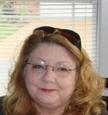There is so much "information" on the internet about addiction and recovery and unless you already have some knowledge about addiction and recovery, all resources may appear equal to you. This is not the case.
There are advertisements, articles, and blog posts about addiction recovery products and services that are pretty much equal to the latest snake oil products for losing weight without diet and exercise. If it seems too good to be true, it is. There are no magic pills, herbal supplements, or miraculous techniques that cure addiction.
There really is no cure for addiction. Addiction can be "arrested" much like cancer is "arrested", but it is never cured. The progression of addiction can be put into a kind of "time-out" or "remission" by stopping the consumption of mood altering drugs.
Stopping the consumption of mood altering drugs is accomplished through an arduous process. This process includes coming to truly know and accept that alcohol and other drugs are the problem and not the solution. It also involves the understanding that once you take the first one (whether it is a pill, drink, joint, etc.) that you no longer have control. The "first one" in this context is the first one after a period of abstinence, such as upon awakening in the morning, or after having decided to quit using and being abstinent over hours, days, weeks, or even years. While some people are addicted from the very first one, the addiction develops over time for many others. The first part of early recovery is breaking the momentum of the addiction by establishing abstinence after the last bout of using.
Achieving abstinence may require much hard work, and emotional, psychological, and spiritual support from others. Many people experience withdrawal symptoms as the body detoxes. A frequent component of withdrawal is intense cravings for the drug. A recovering person has to learn how to combat the cravings in order to not return to using. This struggle is difficult for many people, but if each craving is met with cognitive, behavioral, emotional, and spiritual techniques, the recovering person can withstand the pressure to use long enough to get through detox and withdrawal, thereby breaking the momentum of the addiction.
This can be deceptive to people trying to establish abstinence. There are a great many psychological defenses that are deployed in order justify returning to using. Unless the newly sober person remains vigilant and understands that detox and abstinence is but the very beginning of recovery, they may think that they have accomplished recovery and relapse will follow closely behind.
There are many other early recovery tasks that must be accomplished in order to not only maintain abstinence but to continue to recover the ability to think clearly, to process feelings appropriately, to regain life skills, and to recover in all areas of the addict's life.
Another misleading notion that you may see on the internet is the idea that if you find the "underlying cause", you can cure addiction. While many alcoholics/addicts have had trauma in their lives, trauma did not cause their addiction. Discovering who molested the addict, who abandoned them, or processing through the traumatic events of an addict's life are important therapeutic activities, but having an "ah-ha" moment does not cure addiction. Recovery activities that seek to discover the things that alcoholic/addicts drank or used over are helpful and necessary to establish on-going recovery, and to identify areas in need of living skills for relapse prevention. Addiction recovery is not an easy fix--regardless of who is touting their wares.
Trusted sources of information are SAMHSA, NIDA, NIAAA, NCADI, Join Together, and other academic and professional sources. Trusted names and programs on addiction involve people with academic and license credentials.
Peggy Ferguson, Ph.D. is a private practice therapist who has been working with alcoholics/addicts and their families for more than 20 years. If you found this article helpful, you will probably find the numerous other free articles and educational resources on this topics (and others) helpful as well. There is an excellent page of credible links as well. To answer a survey about what you would like to know more about, or to purchase my ebook, "Understanding Cross Addiction to Prevent Relapse" go to http://www.peggyferguson.com/ServicesProvided.en.html
My website is a work in progress. To visit my website or to sign up for my newsletter, go to http://www.peggyferguson.com
Peggy L. Ferguson, Ph.D., Licensed Alcohol/Drug Counselor, Licensed Marital/Family Therapist, Author, Trainer, Consultant, Private Practice Professional providing services in Stillwater Oklahoma.

Post new comment
Please Register or Login to post new comment.